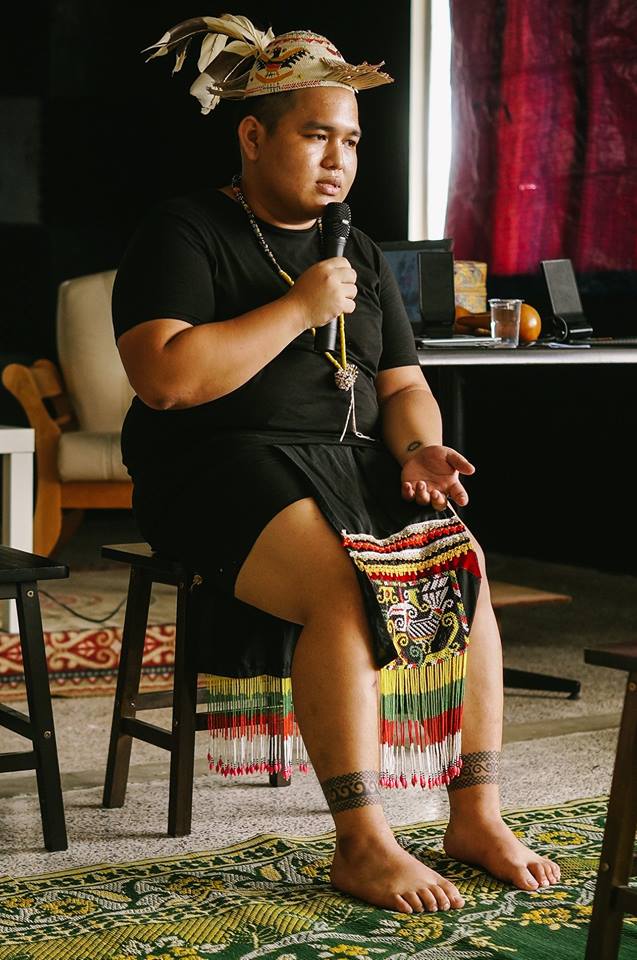“As unbelieving as it sounds, my journey started from a dream. My name is Adrian Jo Milang and I belong to one of the Kayan tribes of Borneo.
When I was 12 years old, I had a vivid dream. I was surrounded by the elders of my tribe and they all seemed to be singing in a language I couldn’t really place. Next day, I was spending time with my grandmother and I narrated this dream to her. She asked me if I could recall some of the words that were being said. After telling her (the lyrics), my grandmother revealed what I had heard was in fact something called ‘takna’ – a long form narration of an epic tale performed by my tribe members back in the days. Intrigued, I sat down with her and we wrote down whatever she remembered (of the song), she took me through the lyrics and the tunes, she described how the performances used to be held and when we finished, we had unearthed yet another fascinating facet of a culture now so lost.
I have been studying this ancient language for quite some time now. So far we know that the language is a mix of dialects originating from several Kayan tribes, but who exactly came up with it is unknown.
‘Takna’ and ‘parap’ were performed by tribe members during special occasions, weddings and harvest seasons to keep the workers energised. The songs revolve around tales of the village heroes and can last from a couple of hours to a couple of days. Ritual says, to leave an ongoing takna you must take permission of the high spirit so as to not disturb the others. In fact, takna music is so powerful it can take the performer and their audience into a trance!”
Sometimes, as a performer it shocks me that language can move you in such a way. For many people, when they think of Borneo they immediately associate it with dense rainforests, mushy mangroves and nomadic tribes; and of lately, with the Rainforest World Music Festival. However growing up as a Kayan, Borneo for me spells so much undiscovered art and culture that even I do not have a comprehensive grasp of what my culture really offers. An example being the takna music that I’ve grown to love.
It is sad to see our culture deteriorating rapidly. Nowadays, these performances are only held once a year and their knowledge only lies with the elders of the tribe. Once we lose them, it is like an entire generation of heritage that will be soon be washed away.
I want to now take my journey further. Over the past few years, I have been lucky to have some opportunities to represent the orang ulu of Borneo at several national and international art and culture talks and exhibitions. In the meantime, I am encouraging my siblings to learn these songs and keep them close to their hearts.
There is after all no written scripture available anywhere that can document these poems and songs. Working on the revival of our languages, literature and arts is my passion and despite the many challenges I might face as I move forward, I believe there’s nothing that can deter me from preserving my heritage.”
This story is published in conjunction with the International Mother Language Day held on February 21 annually.
Story by Nafisa Dahodwala
Photo by Sonia Luhong Wan
Do you have a story? Let us know here: https://forms.gle/ht4HsvbxgSgcKS5h8

(This post was first published on February 22nd 2018)


